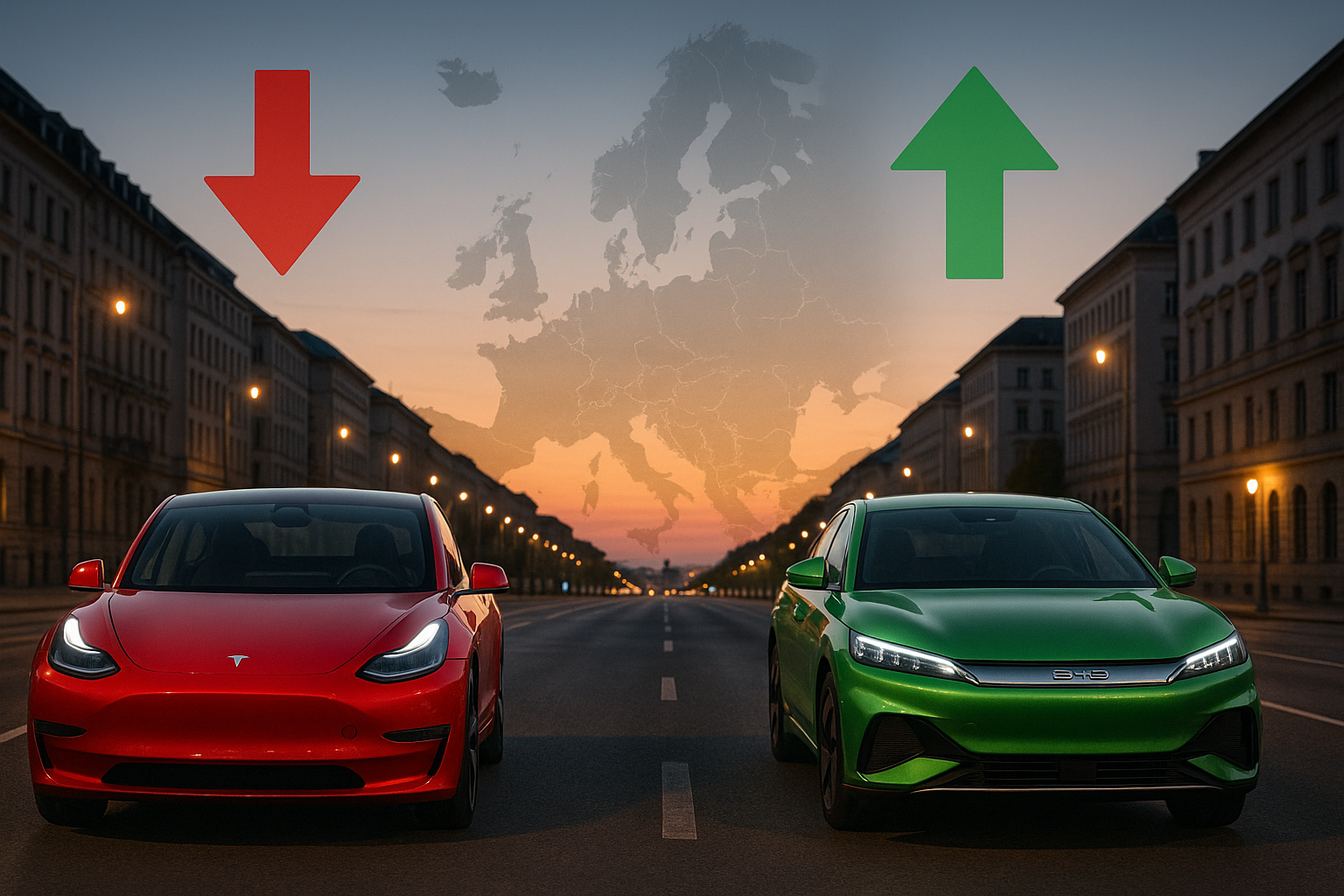Tesla's once-dominant position in the European electric vehicle market is crumbling—and fast. The American EV pioneer has watched its sales nosedive by a jaw-dropping 40% across European markets, while Chinese manufacturer BYD has somehow managed to triple its presence in the same timeframe.
It's a stunning reversal of fortune.
I've been tracking Tesla's European performance since 2019, and nothing in the company's previous trajectory suggested such a precipitous decline was coming. Yet here we are.
The European market has always been... different. Unlike in America, where Tesla essentially had the EV playground to itself for years, European manufacturers jumped into the electric game early and aggressively. Volkswagen, Renault, and others didn't just dip their toes in the water—they dove in headfirst.
But this isn't just about European brands protecting their turf. No, this is something else entirely.
The real story here is how quickly Chinese manufacturers (BYD in particular) have figured out the EV formula: compelling vehicles at prices that make Tesla look like it's selling luxury goods. Which, let's be honest, it kind of is.
Look, we've seen this pattern before in dozens of industries. An innovative company creates a market, sets the standards, enjoys fat profit margins—until competitors show up with comparable products at lower prices. Tale as old as capitalism. What's remarkable is just how rapidly this cycle is playing out in the EV world.
Tesla's response has been telling and, frankly, insufficient. Price cuts across its European lineup haven't stopped the bleeding, suggesting deeper issues. European buyers (who can be painfully picky about build quality and design details) appear to be finding Chinese alternatives more compelling on multiple fronts, not just price.
Then there's the Elon factor.
As Tesla's CEO has become increasingly controversial and politically outspoken, some European consumers—who typically skew more progressive than their American counterparts—may be making purchase decisions based partly on the company's leadership. Brand perception matters enormously when you're dropping €50,000+ on a vehicle, and Tesla's brand has undeniably shifted from representing clean-energy innovation to something more... complicated.
Meanwhile, BYD has been executing with remarkable precision. Their vehicles offer competitive range and technology that sometimes surpasses Tesla's. Having started as a battery company before expanding into vehicles, they've got deep expertise in the most critical (and expensive) component of any electric car.
I spoke with several European auto analysts who confirmed BYD's strategy isn't just about undercutting on price—though that helps—but delivering genuine value and quality. One analyst in Frankfurt (who requested anonymity because his firm works with multiple automakers) put it bluntly: "They're building better cars. Period."
The implications stretch far beyond just Tesla and BYD. European manufacturers, who thought they had time to catch up, now face a two-front battle against both American and Chinese competitors. Industry consolidation—something analysts have predicted for years—now seems almost inevitable as margins shrink and development costs remain stubbornly high.
For investors, the message couldn't be clearer: first-mover advantage matters, but it doesn't last forever. Tesla deserves enormous credit for pushing electrification forward when traditional automakers were dragging their feet. But maintaining market leadership requires constant innovation and near-perfect execution. The European sales figures suggest Tesla is falling short on both counts.
What happens next? That's the billion-dollar question.
Can Tesla regain momentum with new models and manufacturing improvements? Will BYD overcome potential regulatory hurdles as Europe grows increasingly wary of Chinese economic influence? And how will traditional European automakers—many struggling with their own electric transitions—respond to this shifting competitive landscape?
(As someone who's covered the auto industry for over a decade, I've learned to be cautious with predictions—the only constant in this business is surprise.)
The silver lining in all this? Competition drives innovation and pushes prices down. For consumers, Tesla's European retreat is creating space for better vehicles at lower prices.
And isn't that what we wanted all along?
